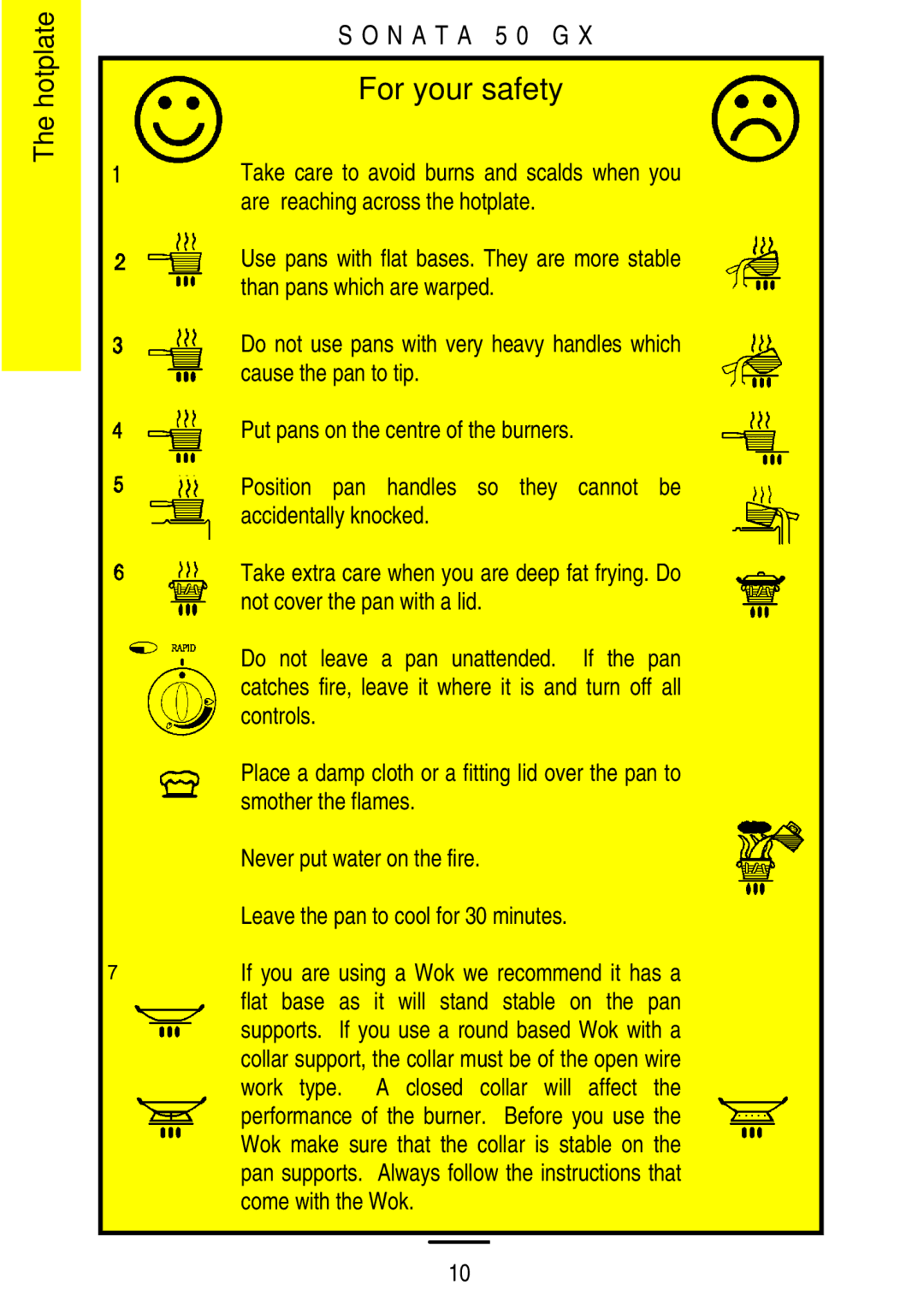
The hotplate
S O N A T A 5 0 G X
|
| For your safety |
| Take care to avoid burns and scalds when you | |
| are reaching across the hotplate. | |
| Use pans with flat bases. They are more stable | |
| than pans which are warped. | |
| Do not use pans with very heavy handles which | |
| cause the pan to tip. | |
| Put pans on the centre of the burners. | |
| Position pan handles so they cannot be | |
| accidentally knocked. | |
| Take extra care when you are deep fat frying. Do | |
| not cover the pan with a lid. | |
| Do not leave a pan unattended. If the pan | |
| catches fire, leave it where it is and turn off all | |
| controls. |
|
| Place a damp cloth or a fitting lid over the pan to | |
| smother the flames. | |
| Never put water on the fire. | |
| Leave the pan to cool for 30 minutes. | |
7 | If you are using a Wok we recommend it has a | |
| flat base as it will stand stable on the pan | |
| supports. If you use a round based Wok with a | |
| collar support, the collar must be of the open wire | |
| work type. | A closed collar will affect the |
| performance of the burner. Before you use the | |
| Wok make sure that the collar is stable on the | |
pan supports. Always follow the instructions that come with the Wok.
10
